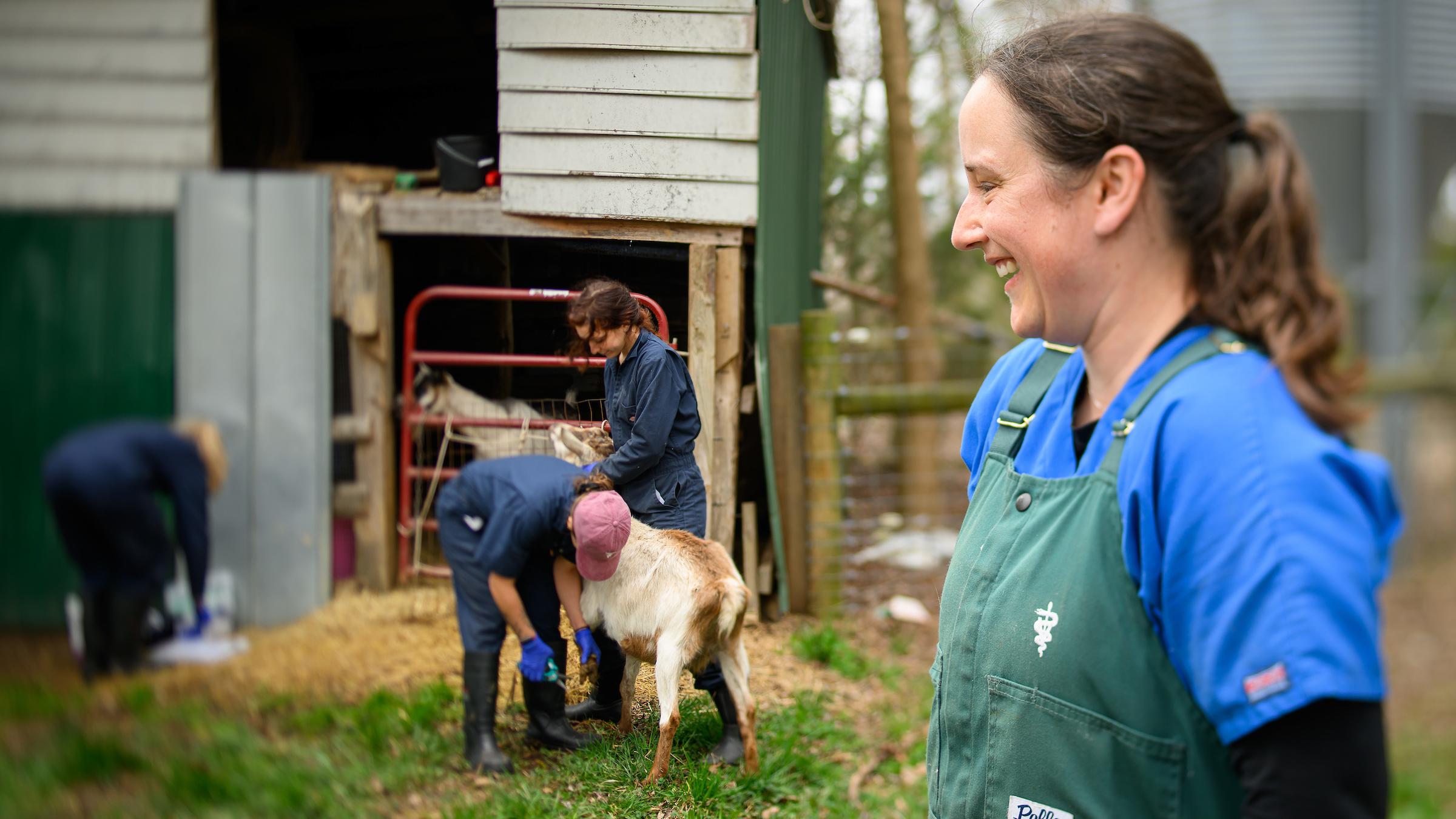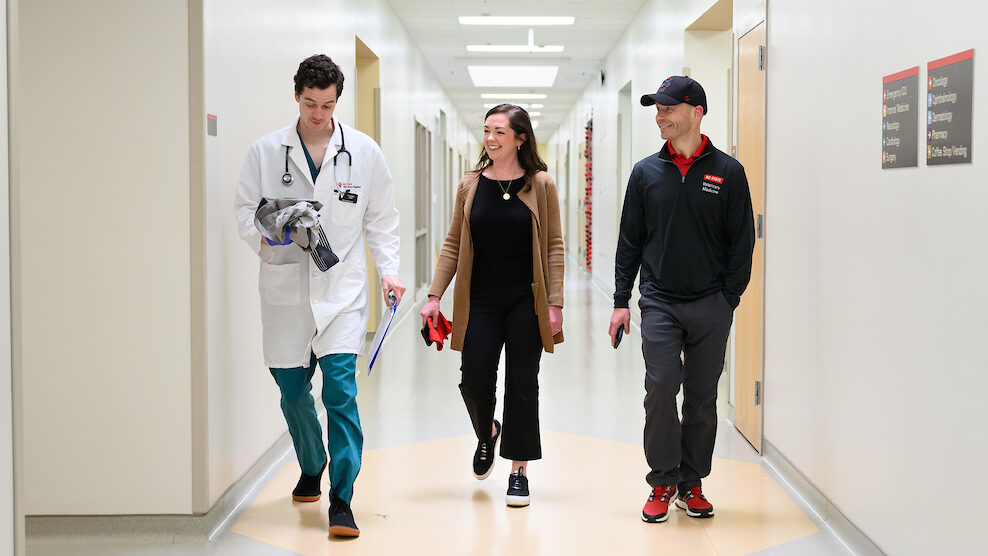CVM Study Reveals a Key Way Your Gut Battles Infections

NC State College of Veterinary Medicine researchers have uncovered a new defense mechanism used by the gut against the parasite Cryptosporidium parvum, one of the leading causes of childhood diarrhea in developing countries.
In the study, which used a pig model, the researchers found that at the peak of Cryptosporidium infections, epithelial cells lining the surface of the intestines produce interferon (IFN)-λ3, a type of protein typically only released by cells during virus infections.
“IFN-λ3 helps the intestinal epithelial cells defend themselves against the parasite and sustain the gut’s protective barrier,” said Jody Gookin, FluoroScience Distinguished Professor in Veterinary Scholars Education and an internal medicine professor at the CVM.
Despite decades of research, there are no consistently effective treatments for diarrhea caused by Cryptosporidium.
Defending the gut from any infectious pathogen is challenging. Home to millions of microbes, the intestines rely on a single layer of epithelial cells – cells that line the body’s inner and outer surfaces – to protect the gut from harmful organisms while simultaneously absorbing useful nutrients.
“For most infections in your body, your immune system finds infected cells and kills them,” said Gookin. “But when the infection targets the intestinal epithelial cells, your gut has to come up with some sort of compromise.”
If intestinal epithelial cells are lost, the gut loses valuable protection from microbes, as well as its ability to absorb nutrients.
By understanding the gut’s defenses against different pathogens, CVM researchers could help develop new strategies for treating and preventing diarrhea worldwide. According to the World Health Organization, there are nearly 1.7 billion cases of childhood diarrhea worldwide each year, which disproportionately occur in developing countries.
Gookin is the corresponding author of the research, published in Cellular and Molecular Gastroenterology and Hepatology. The CVM’s Barbara Sherry and Derek Foster are among the study’s contributors.


